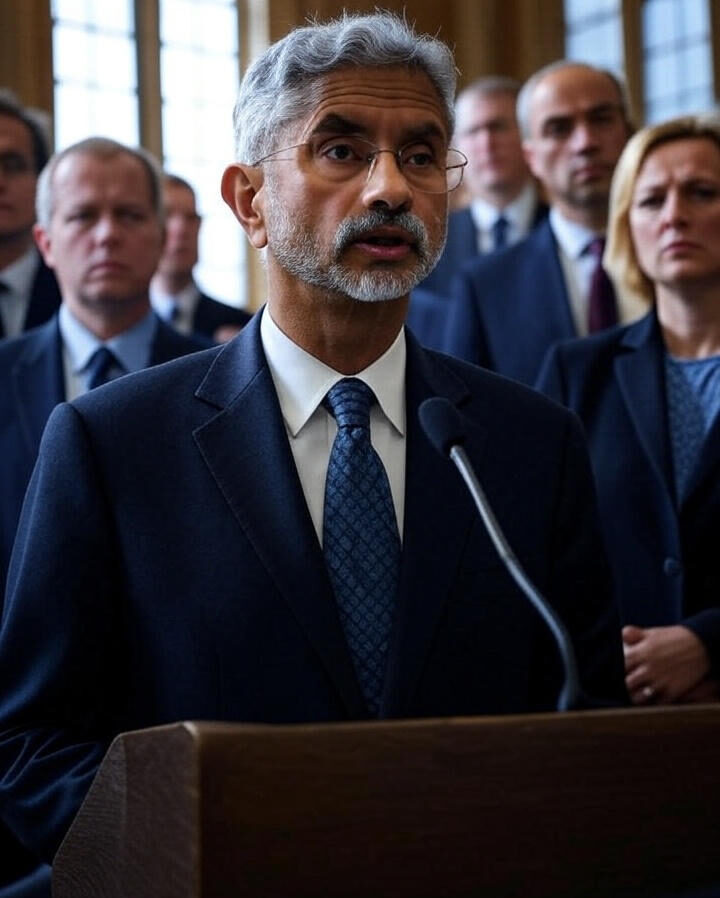India has forcefully pushed back against criticism from the United States and the European Union over its continued imports of Russian oil, accusing Western powers of hypocrisy and selective pressure. This dispute has intensified following fresh U.S. threats of punitive tariffs targeting India, which Prime Minister Narendra Modi’s government regards as unfair targeting.
India’s Accusations: Hypocrisy Over Russian Trade
- India’s Ministry of External Affairs declared it “unjustified” and “unreasonable” to single out India over its energy purchases from Russian oil, while noting that both the EU and U.S. continue significant trade with Moscow (Reuters).
- In 2024, the EU conducted some €67.5 billion in trade with Russia, including record LNG imports of approximately 16.5 million metric tons(Globedge).
- The United States, meanwhile, continues to import Russian uranium hexafluoride, palladium, fertilisers, and other chemicals despite imposing broader sanctions (Reuters).
U.S. Pressure and India’s Response
- On July 31, U.S. President Donald Trump announced a 25% tariff on Indian exports, citing India’s purchases of Russian oil and military goods. He also threatened even higher penalties if India did not curtail these imports (Reuters).
- India responded by emphasizing strategic autonomy, defending its right to make sovereign decisions based on national interest and economic security not align with Western geopolitical goals (The Wall Street Journal).
- The BJP led government and opposition Congress party both condemned the tariff threats as attempts to bully India diplomatically and economically (Reuters).
Economic Fallout and Domestic Effects
- Trade analysts warn that the 25% tariff could reduce India’s exports to the U.S. by around 30%, potentially dropping from $86.5 billion in fiscal 2025 to about $60.6 billion in fiscal 2026 (Reuters).
- India’s rupee opened weaker amid market jitters tied to rising trade tensions. The Reserve Bank of India reportedly intervened to prevent further depreciation toward record lows (Reuters).
- Despite these threats, India’s business sector has remained upbeat. Many Indian businesses view the tariff risk as unlikely to derail their trajectory or broader global investor interest (The Economic Times).
India’s Broader Russia Ties
- India became Russia’s leading oil importer by late 2024, surpassing China, as it capitalized on discounted oil supplies diverted from Western markets during the Ukraine war (Wikipedia).
- Beyond oil, India has supplied sensitive technologies and components including servers and electronics to Russia, sparking concern among Western observers about sanctions circumvention (Wikipedia).
- Indian media and diplomatic voices have long emphasized India’s de‑hyphenated policy, neither fully aligned with Western sanctions nor overtly sided with Moscow keeping ties balanced and pragmatic (Wikipedia).

Summary Table
| Issue | Details |
|---|---|
| India’s Position | Energy purchases are sovereign economic decisions, not political alignment |
| Western Criticism | U.S. and EU accuse India of supporting Russia by continuing trade |
| India’s Rebuttal | Faults hypocrisy West maintains trade with Russia while pressuring India |
| Trade Impact | U.S. tariff threat could slash Indian exports by ~30% |
| Domestic Response | Unified political front; businesses hopeful despite tension |
| Strategic Context | Long standing and expanding trade with Russia across energy & tech |
Broader Implications
- India’s confrontation with the West signifies a deeper shift toward asserting strategic autonomy, favoring national economic priorities over alignment in global geopolitical conflicts.
- The West’s own energy and raw material reliance on Russia especially amid high European demand for LNG weakens the credibility of its criticism of India’s trade choices.
- As India furthers its trajectory as a global economic player, these tensions may shape future trade negotiation dynamics not just with Russia, but in broader U.S. India and EU India relationships.
India’s rebuttal to Western calls for curbs on Russian trade puts the spotlight on asymmetries in global economic norms. While the U.S. and EU assert moral leadership in sanctions against Russia, India is drawing attention to what it sees as selective scrutiny, arguing its energy choices stem from economic pragmatism rather than political partiality.

